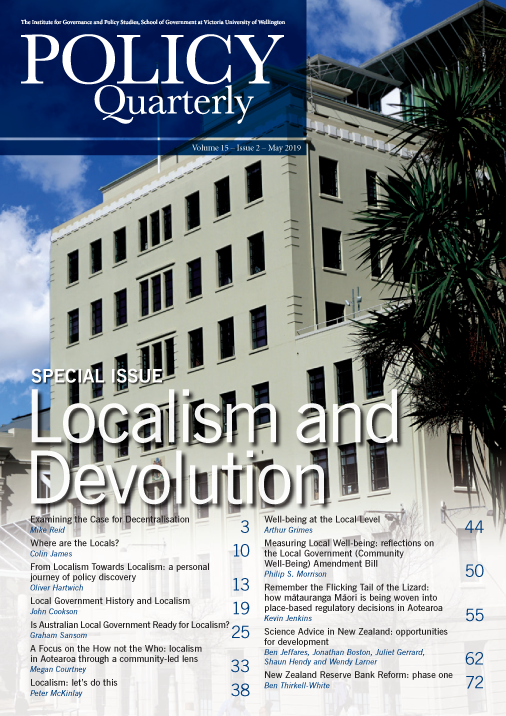Measuring Local Well-being
reflections on the Local Government (Community Well-Being) Amendment Bill
DOI:
https://doi.org/10.26686/pq.v15i2.5370Abstract
The Local Government (Community Well-being) Amendment Bill is designed to provide local authorities with greater legal freedom to make investments that will raise the well-being of their local community. The legislation is predicated on the assumption that people’s well-being is influenced by their local context. In order to identify the influence of changes in context generated by local investments, it is necessary to recognise that individuals differ in many ways and that the impact of any given investment can vary substantially from one person to the next. Indicators based on collections of individuals miss much of that variation. It is also necessary to recognise the variety of ways well-being can be measured. This short article raises both these issues by exploring three measures of well-being currently available on the 2018 Quality of Life survey.
Downloads
Downloads
Published
Issue
Section
License
Permission: In the interest of promoting debate and wider dissemination, the IGPS encourages use of all or part of the articles appearing in PQ, where there is no element of commercial gain. Appropriate acknowledgement of both author and source should be made in all cases. Please direct requests for permission to reprint articles from this publication to Policy-Quarterly@vuw.ac.nz.



